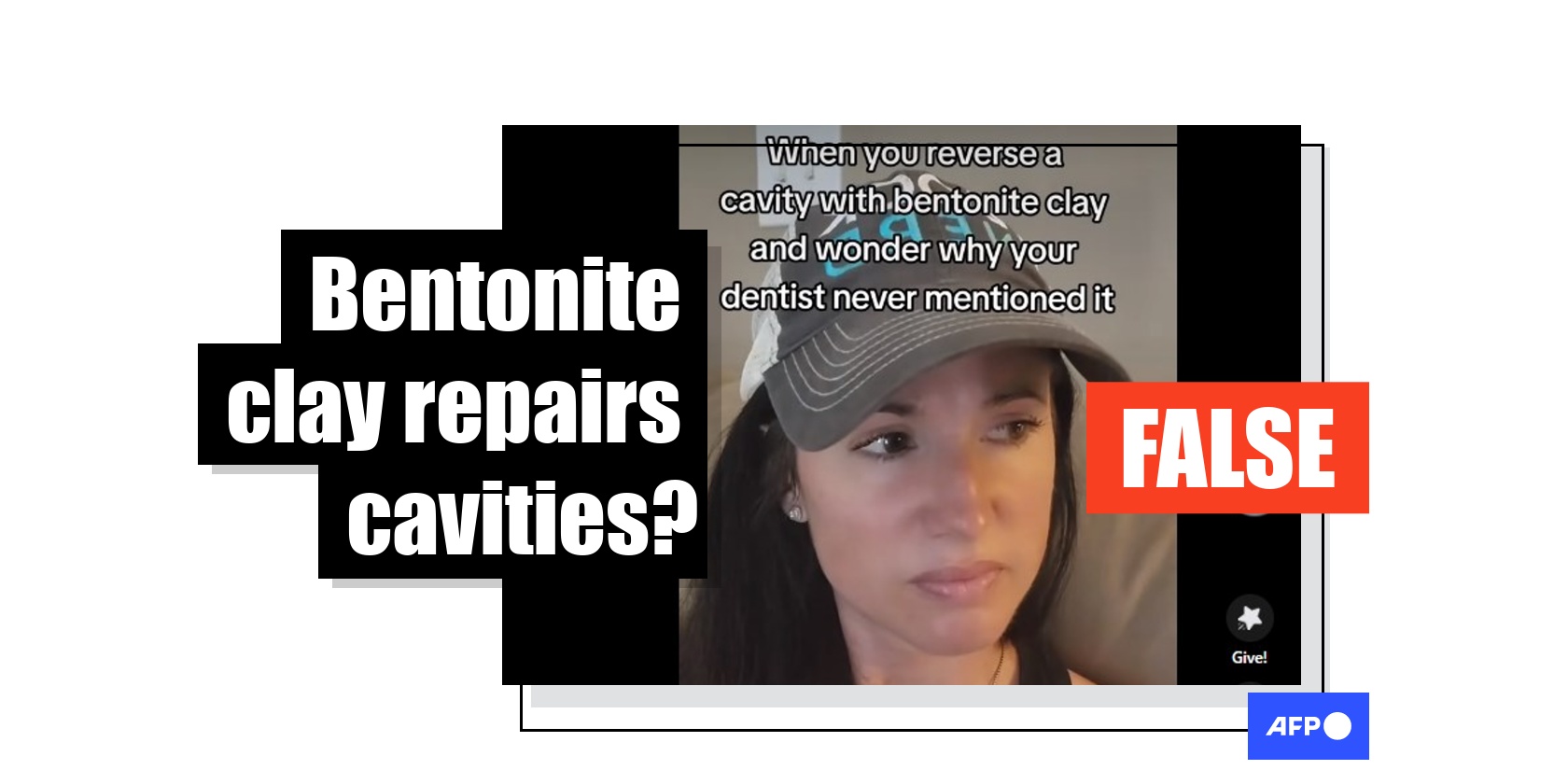
Unproven treatment for tooth decay spreads online
- This article is more than two years old.
- Published on September 20, 2023 at 16:09
- 3 min read
- By Marisha GOLDHAMER, AFP USA
"When you reverse a cavity with bentonite clay and wonder why your dentist never mentioned it," says the text over a September 8, 2023 Facebook reel with 828,000 views from an account of the self-described "health advocate" Maggie Rose.
The woman in the video couches her claims by saying, "This is not dental advice" and "do your own research," but has posted multiple times on TikTok, Instagram and Facebook about success reversing cavities by using bentonite clay. Her website includes a discount code to purchase a food-grade version of the product online.
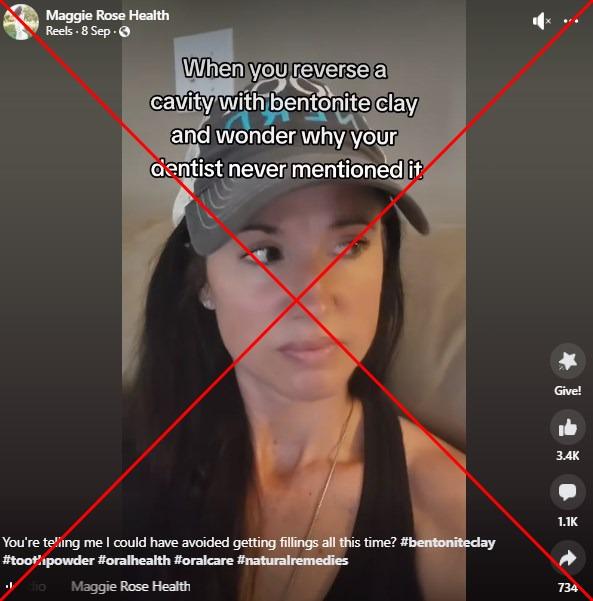
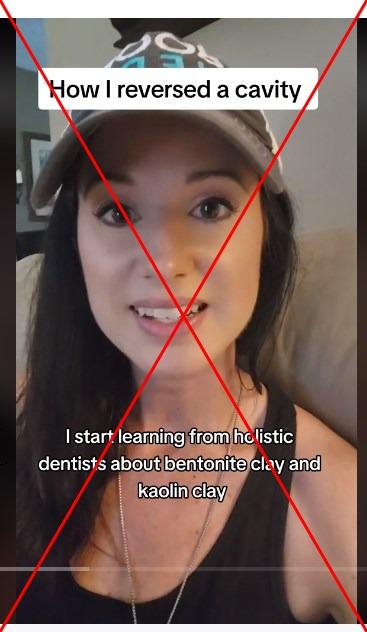
Bentonite clay typically forms after volcanic ash ages. It is named for Fort Benton in the US state of Wyoming where it has been mined for more than 125 years. Used for drilling natural gas wells, bentonite clay is also found in consumer products including cat litter and cosmetics. But there are no reliable studies showing it is an anti-cavity agent, according to the American Dental Association (ADA).
"Based on the lack of scientific evidence, the American Dental Association does not recommend bentonite clay for any dental hygiene practice or benefit," it said in a statement emailed to AFP on September 15.
Augusto Antonio Robles, associate professor at the University of Alabama at Birmingham School of Dentistry, agreed that science has yet to prove the material has dental applications.
"Once a tooth is cavitated, rebuilding is not possible and a restoration (filling) has to be made," he said in a September 19 email.
Robles also warned that "some bentonite may contain variable amounts of respirable crystalline silica, which is a carcinogen."
In 2016, the US Food and Drug Administration issued warnings about two products containing the clay which were found to have elevated lead levels (archived here and here).
Fluoride recommended
Every day, the enamel which protects the outer layer of a tooth "gains and loses minerals," according to the Cleveland Clinic's website (archived here).
Posts on Facebook and X, formerly Twitter, claim bentonite clay will help naturally remineralize teeth.
Robles said the claims rely on the fact that teeth require calcium and phosphate and bentonite clay has trace minerals like calcium, iron, copper and zinc. But homemade toothpastes made with it have not been shown in scientific studies to be effective in preventing decay.
Alternatively, "fluoride has been used and tested for over a century," he said.
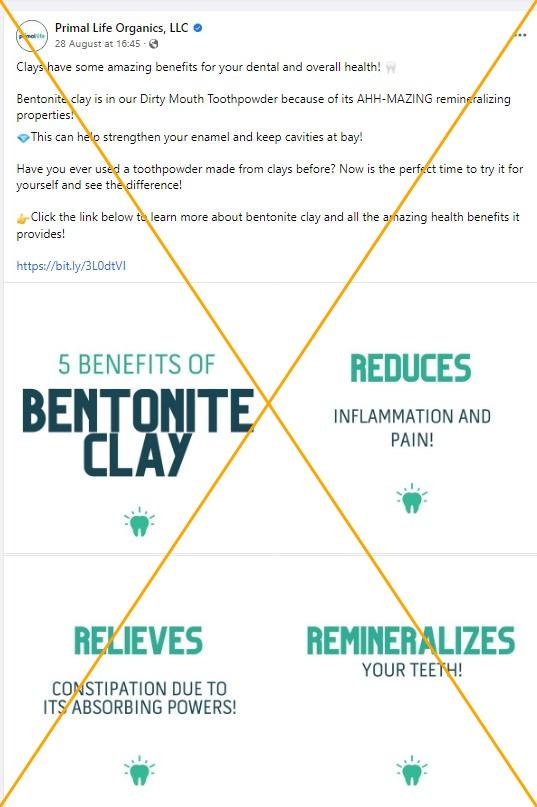
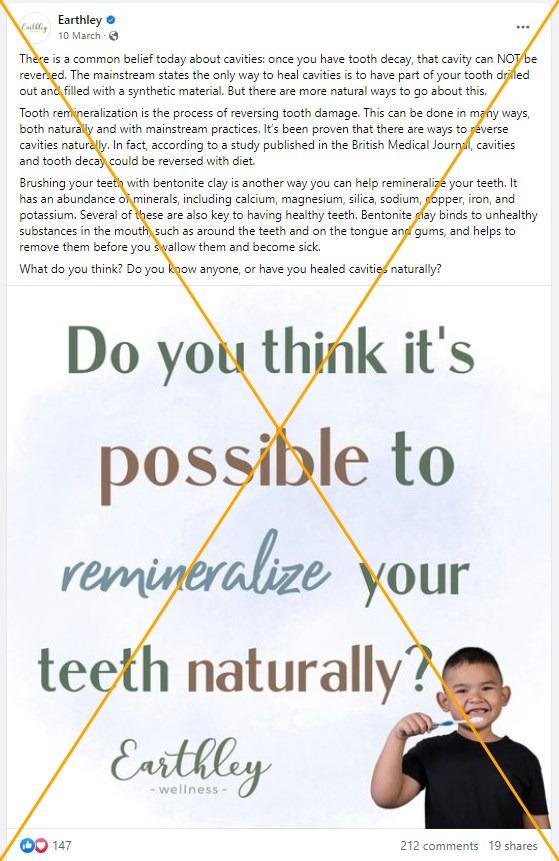
The ADA's website (archived here) points to several studies suggesting "fluoride treatments are effective in protecting dental enamel from the effects of erosion" while admitting that "efficacy varies according to compound or preparation, and further research is needed."
The ADA recommends regular dentist visits and "routine oral care at home -- brushing your teeth for two minutes, twice a day with a fluoride toothpaste, and cleaning between your teeth once a day."
AFP has reported on other unproven dental treatments here.
Copyright © AFP 2017-2026. Any commercial use of this content requires a subscription. Click here to find out more.
Is there content that you would like AFP to fact-check? Get in touch.
Contact us
